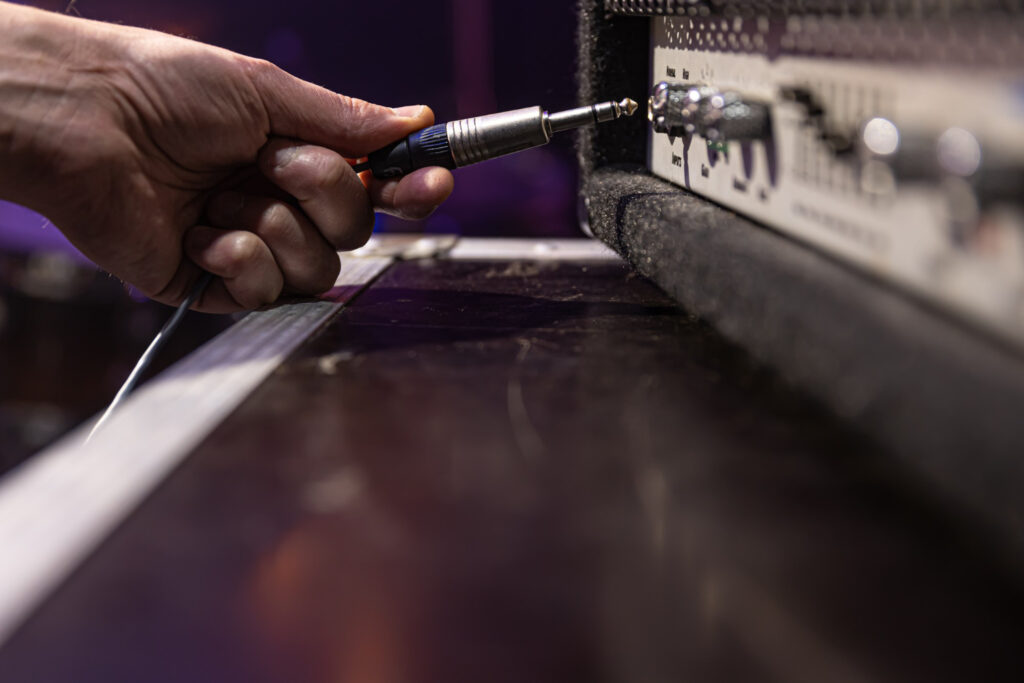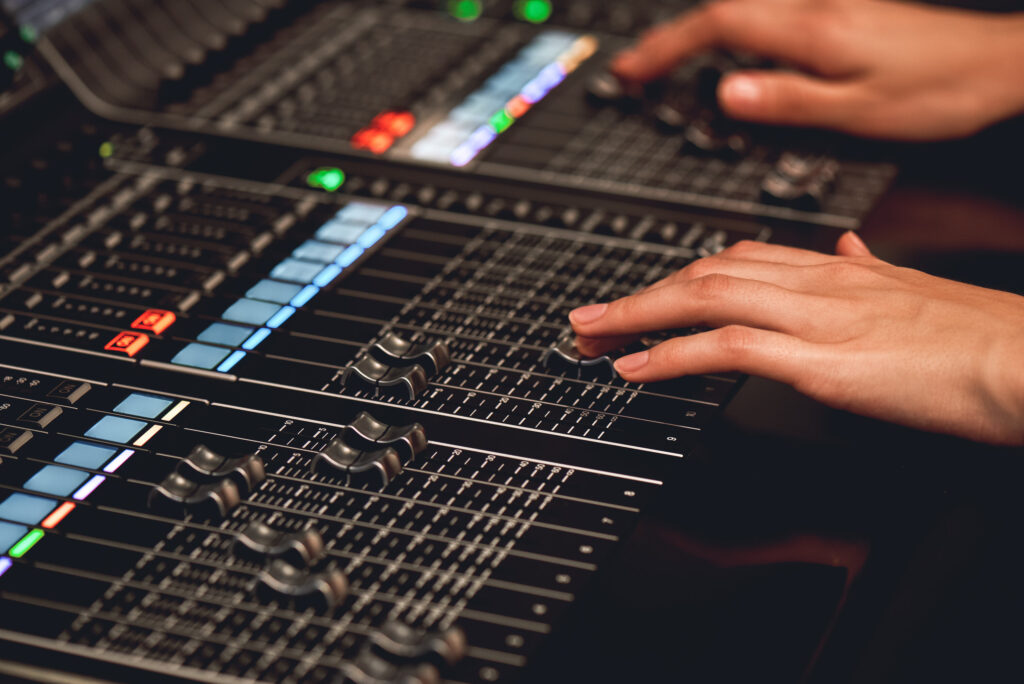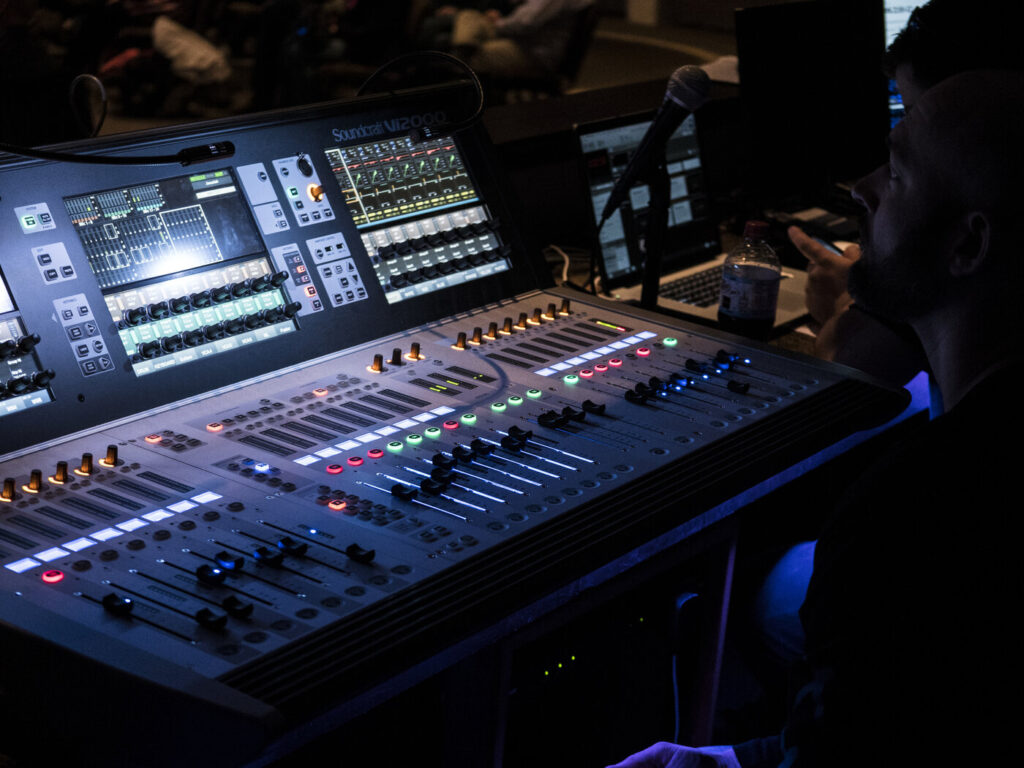When it comes to creating a quality worship experience, the importance of good audio can’t be overstated. Whether a congregation is small and intimate or large and dynamic, a clear, immersive sound is crucial for setting the mood and making the message effective. While many church ministers may not have a background in sound engineering, having a good grasp of sound mixing techniques and understanding the best equipment can go a long way in ensuring that your church service is supported by high-quality sound. With that in mind, this blog aims to provide you with professional mixing tips so that you can confidently mix sound for your church.
Church sound mixing can be a challenging and rewarding task. To start, it is essential to determine the best sound mixer for your church to fit your specific needs. Every church service is unique and has its own requirements when it comes to audio setup, so selecting the right mixer is an important first step. In addition to the hardware, learning how to mix sound for church involves understanding different aspects of sound mixing such as equalization, volume levels, and effects.
In this blog, we will delve into essential professional mixing tips for church sound that cater to both beginners and experienced sound engineers. We will cover topics such as understanding the best sound mixer for church environments, crucial mixing techniques, and practical advice on achieving an optimal sound mix for your congregation. Along the way, we’ll also discuss how to maintain a consistent audio quality that elevates your church services and helps create an unforgettable worship experience for all who attend.
So, let’s dive in and explore the world of church sound mixing, and help you become a more proficient and confident sound engineer in your ministry.
Identifying the Best Sound Mixer for Your Church’s Needs
The first step in achieving a high-quality sound mix is to select the right sound mixer for your church. There are various factors to consider, such as the size of your congregation, the type of services you conduct, and your budget. Begin by researching different mixers that cater to your specific requirements and budget constraints.
When selecting a mixer, consider the number of channels you require, the complexity of your sound setup, and any additional requirements such as routing capabilities or effects processing. Additionally, it’s crucial to think about the future needs of your church, as your congregation could grow or audio requirements could change. Investing in a versatile mixer that can accommodate your evolving needs will ensure your audio setup remains relevant for years to come.
Mastering Equalization Techniques
Equalization (EQ) is a crucial part of the sound mixing process that involves balancing the frequency levels of audio signals. Proper EQ can bring out specific tonal qualities, tame harsh frequencies, and reduce unwanted noise or feedback in your sound mix.
Familiarize yourself with the frequency spectrum and the different audio bands (low, mid, and high frequencies) to make informed decisions about your EQ adjustments. Start by identifying the most essential elements in your mix, such as vocals or instruments, and focus on cutting or boosting the frequencies to achieve the desired tone. Remember that a little goes a long way – making subtle EQ adjustments can significantly impact the overall sound.
One fundamental rule of EQ is to cut before you boost. Reducing unwanted frequencies can create space for the desired elements to shine, rather than trying to push those elements forward by increasing their frequencies. When working with multiple instruments, create separation by carving out a unique frequency space for each instrument, allowing them to blend harmoniously in the mix.
Managing Volume Levels and Dynamics
Another critical aspect of mixing sound for church is managing volume levels and dynamics to create a balanced and engaging sound. As a sound engineer, you’ll need to strike a delicate balance that allows each element of the service to be heard clearly, without overwhelming other parts of the mix.
One helpful technique is to start with the primary vocal or lead instrument. Set their level to a comfortable listening volume, and then mix in the other elements around it. Use faders on your mixing console to adjust levels whenever needed. Pay close attention to the elements that play simultaneously, such as vocals and instruments during worship songs. Make sure they complement and support each other without clashing or overpowering.
Also, consider the use of audio compression to control the dynamics in your mix. Compression can help to stabilize fluctuations in volume and even out the overall sound, preventing sudden peaks or drops in volume. Use compression wisely, as over-compression can make the mix feel lifeless or fatiguing for the listener.
Utilizing Effects and Enhancements
While the focus should primarily be on achieving a clean and balanced mix, it’s also essential to understand the role of effects and enhancements. Reverb, delay, and other effects can add depth and interest to the sound mix, creating a more immersive and engaging worship experience.
The key is to use effects tastefully and in moderation. Determine which elements would benefit from added effects, such as enhancing vocal or instrumental performances. Always start with small adjustments, experimenting with different types and amounts of effects to see what works best for your church environment. Keep in mind that each space is unique, so reverb and delay settings that work in one place may not work as successfully in another setting.
Improving Your Church Sound Mixing Skills Over Time
Mastering the art of mixing sound for church is an ongoing process. By identifying the best sound mixer for your church, mastering EQ techniques, effectively managing volume levels, and utilizing appropriate effects, you can significantly improve the quality of your church sound. Remember, practice makes perfect, and consistently applying these principles over time will yield tangible results.
At MessengerAVL, we provide reliable audio visual equipment for churches to help them achieve optimal sound quality for their services and events. Our team of experts can help you choose the right audio equipment that meets your specific needs and budget. Whether you’re looking to upgrade your audio equipment or need help mastering sound mixing techniques, our team is here to help. Contact us today to learn more about our services and how we can help take your church’s sound to the next level!



